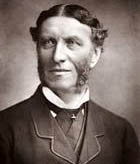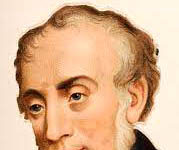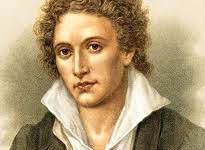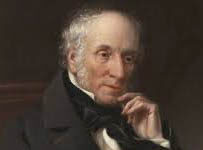Contributions of Mathew Arnold to the History of the Principles of Literary Criticism
Contributions of Mathew Arnold to the History of the Principles of Literary Criticism
Contributions of Mathew Arnold to the History of the Principles of Literary Criticism
Mathew Arnold (1822-1888) was a poet and critic of the Victorian Era in English literature. He began his literary career as a poet and published three poetry books before he arrived at the age of thirty-one. As a poet, he was inspired and influenced by classical poets, especially by Greek poets. He wrote poetry on excellent themes—both classical and contemporary—with a reflective mood. After establishing himself as a poet, he took to writing criticism. As a critic, his criticism clearly falls into two groups. The first group contains criticisms, especially on contemporary political, educational, social and religious controversies. The second group is literary criticism. His literary criticism has two phases. First Practical Literary Criticism that deals with his critical outlook on select English as well as classical Greek poets. The second phase is theoretical criticism in which he has propounded some principles or theories for literary criticism and literary creation. As a theoretical critic, he laid down some principles of literary criticism. But as a lawgiver of literary criticism, he was not systematic and perfect. He only laid down some principles fragmentally in different essays from time to time. He laid down the principles especially on the choice of subject matters in poetry, on manner and style, on the definition and function of poetry, on the method of judging good poetry, on the definition and function of criticism and on the qualification of a critic. But as a law-giver of criticism, he emphasized on the motto of “Art for Life’s Sake” in contrary to “Art for Art’s Sake” and gave emphasis on the moral and instructive purposes of literature. In this respect, he was the first critic to utter the motto “Art for Life’s Sake”. The principles which he gave rise to for literary criticism were something new and something modified in a new light of the old.
His principles of literary criticism were much away from the age-long Aristotelian principles and he differs much from Aristotle in the following ways:
First, Aristotle or Aristotelian critics considered art not for life’s sake but for art’s sake, on the contrary, Arnold considered art for life’s sake.
Secondly, Aristotle thought that the purpose of any art is to afford pleasure and delight. But Arnold said that art should instruct the general public.
Thirdly, Aristotle considered no moral or ethical responsibility of art to society. But Arnold on the contrary was of the view that art should have a moral and instructive duty to society.
Fourthly, Aristotle gave the principles that govern the making and creating of poetry. While Mathew Arnold laid down the principles by which the best poems might be selected.
The comparison between the two shows us how Arnold was different as a critic from the traditional age-long creed of literary criticism. Now let us illustrate the theories or principles or views of Mathew Arnold in detail that he contributed to the history of the principles of literary criticism. But here to be noted that he laid down his principles basing upon the poetry of the classical poets.
The Choice of Matter in Poetry
First of all Mathew Arnold propagated his views on the Choice of Matter in Poetry in an essay written as ‘The Preface’ to the poems which he published in 1853 at the age of thirty-one. In this essay, he says that the subject (which he calls ‘action’) of poetry should be excellent. But what actions are most excellent? To its answer, the critic Arnold says that the actions or matters are that “which most powerfully appeal to the great primary human affections: to those elementary feelings which subsist permanently. In the race and which are independent of time.” In saying so, he says more that—the matter or subject of poetry may be either of the gone days or of the present days. Whether old or new—it is no matter. The main thing in poetry is that the matter of poetry should be excellent or great. He says about human nature and passions that a great human action of a thousand years old is more interesting than a smaller human action of today. So, to be good and great, the matter of poetry must be excellent i.e. the matter must represent the elementary feeling which subsists permanently in human heart and mind. Mathew Arnold illustrated this view very clearly citing such persons from history as—Achilles, Prometheus, Clytemnestra, Dido, Hamlet, Macbeth etc. He says that these personages are interesting for all ages because their actions are greater, their activities are grand and their situations are intense—which attract the attention of all ages. Again he defends his views on excellent action in poetry saying that the personages like Hamlet, Macbeth, or Oedipus are histories—but their feelings and behavior in certain tragic situations are eternal and so they are accessible to the modern poets as to a contemporary.
To comment on the views of Mathew Arnold on the choice of subject matters i.e. excellent action in poetry it is to say that Mathew Arnold is true if thought deeply. It is generally seen that a case or matter in which human feelings—emotions, passions—are expressed best attracts the attraction of people most. There are many poems or any kind of art which are created after trifling actions. This kind of poetry may be decorated by colorful embellishments or by strong similes or metaphors but cannot attain universal or permanent nature if the feeling of human action is not excellent. On the grounds of matter, Mathew Arnold praises William Shakespeare most because Shakespeare chose the excellent subjects for his plays. Arnold goes on to say more that there are many imitators of William Shakespeare but they are far away from being as great as Shakespeare because they imitated Shakespeare’s manner of expression, not the excellent matters as Shakespeare did. Hence it is right to say that Arnold’s view on the choice of subject in poetry is true. It is experienced through the ages that no amount of embellishment and decoration no excellence of similes and metaphors can for long hide the inferiority of a subject.
Manner and Style of Poetry
Secondly, he casts his view on the Manner and Style of Poetry. Like his view on the choice of matters in poetry, he is classical also in his view on the manner and style of poetry. Though his views occur in The Preface of 1853 to his poems, it is in his essay on Translating Homer that his views on the topic are fully developed. He is of the view that the manner and style of poetry should be either simple or serene. Manner or style should correspond to the excellence of the matter. But style is not the main thing. It is proportional to the matter. Here Arnold throws his comment on the style of the Greeks and of the English poets. He compares the style of the two and says that the highest poetry and highest poetic pleasure result from both the matter and style not from matters alone. The Greeks regarded the whole but the English regarded the parts. Hence Arnold praises the style of the Greek poets and says,
The Greeks are the highest model of expression, the masters of the grand style; but the expression is so excellent because it is so admirably kept in its right degree of prominence.
Again he says, “Where the style is wanting, the former has no legs to stand on.” Arnold praises the style of Homer, Dante, and Milton very highly and says, “Homer was the grand master of the grand style.” He says that it is the grand style when an excellent subject is treated with practically gifted simple or severe style. His grand style is the same as the sublime of Longinus. The main thing for style to be grand is that the manner of expression must be severe like that of Milton and Homer. He criticizes the style of Keats and says:
”Modern poets like Keats don’t have the shaping power; the architecture, which great poetry should have. They have short passages and single lines of admitted excellence, but not the beauty of the whole.”
Thus Arnold’s view on the style and manner of poetry is classical, not absolutely his own. His view on grand style is based upon the style of that of Milton, Dante, Homer and on other Greek poets. He even criticizes the style of William Shakespeare and says that in choosing the matter of poetry, poets may take Shakespeare as a model but in style can never be a safe model because of his manner of expression; though poetically gifted, yet extremely difficult. He says:
There are some scenes in some of his greatest tragedies like ‘King Lear’ for instance where the language is so artificial, so curiously tortured and so difficult that every speech has to be read two or three times before its meaning can be comprehended.”
Method of Judging High or Best Poetry
Thirdly, Mathew Arnold says about the Method of Judging High or Best Poetry. The critic has not said clearly about the characteristics of high poetry or best poetry. But he says that high poetry has something of perennial interest, something which appeals to the primary human affections and instinct. He had not admitted to the historic or personal estimation of poetry. He is in constant view that the classics, especially the Greek classical poems are the highest or best poems and the best or high poems of any age and modern poetry might be judged taking the classical poems as Touchstone. He suggests to the critics to take a few widely different passages from Homer, Dante, Shakespeare and Milton which are poetically higher and then he suggests to take those passages as a touchstone to judge the standard of other poetry.
To comment on the Touchstone method of judging high or best poetry of Arnold, it is to say that this method cannot be conducive to all and to every sense of criticism. Because the selected passages or lines that one takes to be the touchstone for judging others’ poetry may not be best for another. Moreover, poetry is an art and the quality or value of art depends upon— how truly and convincingly it represents the life and the feeling of the time when it is created. Moreover, this view of Arnold obliquely corresponds to the comparative method. But by a comparative method, the high or best poetry may be selected between two pieces of poetry but not from many. Again more to say, that the good or worse of a thing changes with the change of time, person, and situation. Moreover, Arnold in propagating this theory goes against his own view that the true worth of a work can be judged by its “total impression” not by single lines or brief passages; but here in his Touchstone method, he contradicts his own earlier pronouncements.
Definition of Poetry
Fourthly, Arnold gives the Definition of Poetry and says about the Functions of Poetry. He elaborates his Definition of Poetry in his famous essay, Study of Poetry which first appeared as an introduction to A.C. wards, Selections from English Poets. In defining poetry Mathew Arnold was the first critic in England who defined poetry in relation to life and society. He defines poetry as, “Poetry is the criticism of life under the conditions fixed for such a criticism by the laws of poetic truth and poetic beauty.” But Arnold has not elaborated these terms of ‘Poetic truth’, ‘Poetic beauty’, ‘Poetic condition’ for which his definition is vague to us. Without elaboration, he only explains the term—“criticism of life” as “the noble and profound applications of ideas of life.” And he elaborates the laws of poetic truth and poetic beauty as “truth and seriousness of substance and matter and facility and perfection of diction and manner.” Arnold believes that poetry does not present life as it is; rather the poet adds to it something from his own noble nature and experience which becomes the criticism of life. He also believes that poetry makes men moral, better, and nobler but in reality, it does not do so, it appeals to our souls.
Function of Poetry
About the Function of Poetry, he says that poetry is capable of higher uses, it is capable of interpreting life for us, of consoling us, and of sustaining us. It will replace what we understand through religion and philosophy depending on reasoning. It has social responsibilities. But what poetry teaches, it teaches not directly but indirectly.
To comment on Arnold’s definition and functions of poetry, it is to say that Arnold gave emphasis on “art for life’s sake” for the first time in England which becomes the motto of late twentieth-century literature and in this respect, he was modern and realistic.
Definition of Criticism, Function of Criticism and the Qualifications of a Critic
Fifthly, Arnold upholds the Definition of Criticism, Function of Criticism and the Qualifications of a Critic. In the essay, ‘The Functions of Criticism at the Present Time’ prefixed to the first series of his ‘Essays in Criticism’, he defines criticism, elaborates its functions, and lays down the qualifications of a critic.
He defines criticism as under:
”Criticism is a disinterested endeavor to learn and propagate the best that is known and thought in the world and thus to establish a current of a fresh and true idea.”
Thus the task of a critic seems to be three-fold in character:
First, there is the critic’s duty to learn and understand—he must see things as they really are.
Secondly, he has to make others know the best ideas.
Thirdly, he must prepare an atmosphere favorable for the creative genius of the future. Thus the functions of Arnold’s criticism are to promote culture and social life in general and in this respect poetry becomes a responsible tool for society.
Here it is to be noted that Arnold’s use of the word “disinterested endeavor” is not clear in meaning and he has not elaborated the phrase. But by it, we think that he wants to mean that the work of a critic is much more wearisome than creative activity for which criticism becomes troublesome and disinterested and the critic must forebear these troubles and pains to save society because by criticism the critic promotes the caliber of human ideas.
These are the contributions of Mathew Arnold to the history of the principles and theories of literary criticism. But as a critic of criticism he has some weaknesses as he lacks total originality because he propounded his theory basing upon classical poetry, but not considering the poetry of his own day in general for which his theories are partial and classical. Secondly, he lacks order and discipline as a critic, because he upholds his principles regarding literary criticism not in a single book systematically, but in various essays from time to time. Moreover, his criticism comprises of only a few sides of poetry—he says not all about poetry. Thirdly, his conception of the method of judging the best poetry is not errorless, because only the select passages from classical poems can not always be the basis of judging poetry. The value and worth of any art depend upon the time and society in which it is created. Fourthly, Arnold has not explained all the terms and phrases he used in his theories for which the main motives of his pronouncements are not apparently comprehensible. Fifthly, his view on grand style is not his own. It is Longinus’ ‘Sublime’ applied in his own term.
Though as a critic of critical theories of literature Mathew Arnold has some faults and weaknesses, yet he has more merits as a great critic because he for the first time defines poetry in relation to life and society. In defining and upholding his views of criticism he is both modern and realistic and here lies his credit as a theory giver of literature. 0 0 0.
Contributions of Mathew Arnold to the History of the Principles of Literary Criticism
You May Like:
‘Poetry is the Criticism of LIfe’ Mathew Arnold-An Explanation
N. B. The article originally belongs to the book entitled ‘ Essays on Literary Theory and Principle‘ by Menonim Menonimus
Contributions of Mathew Arnold to the History of the Principles of Literary Criticism
Books on Literary Criticism by M. Menonimus:
- World Short Story Criticism
- World Poetry Criticism
- World Drama Criticism
- World Novel Criticism
- World Essay Criticism
- Indian English Poetry Criticism
- Indian English Poets and Poetry Chief Features
- Emily Dickinson’s Poetry-A Thematic Study
- Walt Whitman’s Poetry-A Thematic Study
- Critical Essays on English Poetry
- Tawfiq al-Hakim’s Novel: Return of the Spirit-An Analytical Study
- Tawfiq al-Hakim’s Novel: ‘Yawmiyyat Naib Fil Arayaf’-An Analytical Study
- Analytical Studies of Some Arabic Short Stories
- A Brief History of Arabic Literature: Pre-Islamic Period (500 AD-622 AD)
- A Brief History of Arabic Literature: Early Islamic Period (622 AD-661 AD) …
Related Search:
- Literary Criticism of Coleridge
- History and Principles of Literary Criticism
- Critical Analysis of Coleridge’s Imagination and Fancy
- Coleridge’s Definition of Poetry
- Arnold’s Concept of Poetry as a Criticism of life
- Poetry Definition Types











